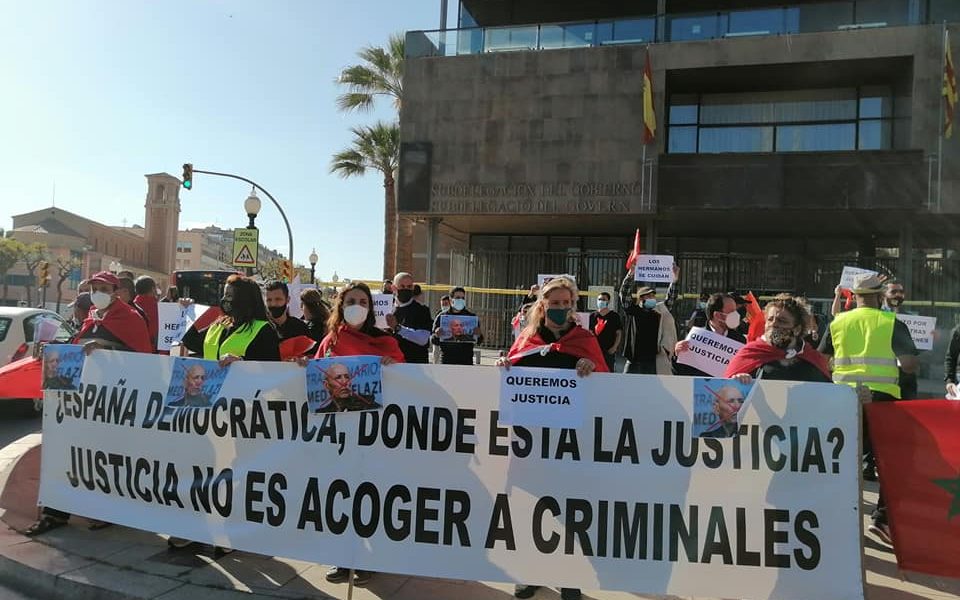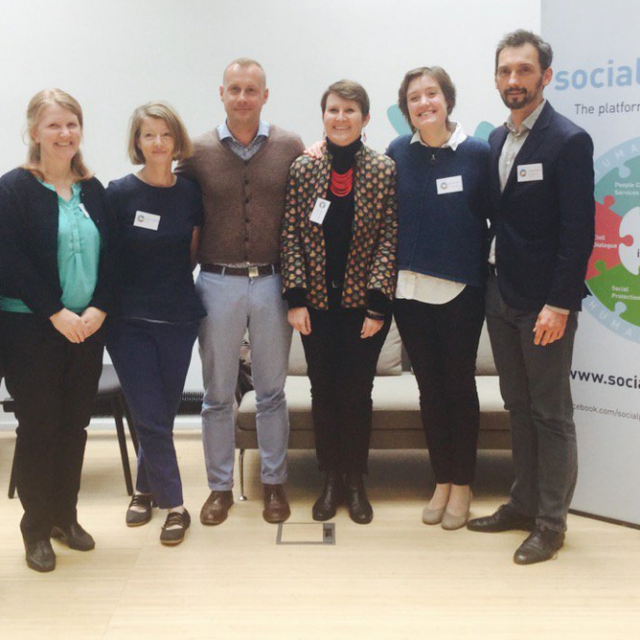On 23 April, Brahim Ghali the head of the separatist movement Polisario, was welcomed by Spain to receive treatment in a hospital in Logroño, under a false Algerian identity and with forged papers.
He hoped through this subterfuge to escape Spanish justice since he has pending an arrest warrant issued against him in Spain for rape, genocide, terrorism, war crimes and other charges.
The behaviour of the Spanish authorities in this case has provoked extreme embarrassment on the part of the European External Action Service, it has triggered a serious diplomatic incident with Morocco and has sparked protests from Polisario’s victims.
In Spain, hundreds of victims demonstrated in Madrid, Tarragona and other cities to denounce the attitude of the Spanish authorities which allowed Brahim Ghali to enter the Spanish territory under a fake Algerian identity.
They have demanded that the Spanish judiciary reactivate and speed up his pending prosecution in order to prevent his escape from justice. There is a European Arrest Warrant issued against Ghali, and he stands accused of having ordered assassinations, kidnappings and torture against hundreds of Moroccan and at least 300 Spanish victims.
The complaints against Brahim Ghali include a testimony of rape lodged with the Spanish National Hearing by Khadijatou Mohamed Mahmoud, a young Sahrawi girl from the Tindouf camps.

“I learned, a few days ago, through the media, that Brahim Ghali, the man who raped me, is here. I am very grateful to this country which gave me the ‘opportunity to file a complaint, which recognised my rights. But I would be even more grateful if he is arrested.”
Khadijatou Mahmoud
They also include a deposition filed by the Spanish political scientist Pedro Ignacio Altamirano complaining that Ghali instigated death threats against him on social media, amounting to the menace of violence in breach of his human rights.
Speaking to the EFE news agency, the foreign minister of Morocco Nasser Bourita could not hide the incandescence of his palpable anger as he condemned Spain’s decision to welcome Brahim Ghali to its territory. According to Bourita, the Spanish attitude could seriously affect relations between the two countries.
Nasser Bourita indicated clearly that he had not received “satisfactory and convincing answers” to the multiple questions that the Moroccan foreign ministry addressed to their Spanish counterparts in a press release published on 25 April. The Spanish faux pas amounts to a serious breach of trust, which risks harming Spain’s otherwise good neighbourly relations and friendship with Morocco.
For the Moroccan Minister of Foreign Affairs, this crisis between the two countries is a real test for their bilateral relationship. “We will see if the reality and the sincerity of our relationship is not just a slogan,” said Bourita. The preservation of the bilateral partnership is a shared responsibility, which is nourished by a permanent commitment to safeguard mutual trust, maintain fruitful cooperation and safeguard the strategic interests of the two countries.
Meanwhile, in Brussels, the normally sententious External Action Service headed by Spaniard Josep Borrell, which is quick to preach to third countries when given an opportunity to sermonise, appears to have been stunned into an embarrassed silence by this quite astonishing undiplomatic behaviour on the part of the Spanish.
Not so in the European Parliament, where at least two MEPs have criticised the behaviour of Spain. “As a European citizen, I wonder how the Spanish government can allow a notorious criminal like Ghali to enter Europe?” says MEP Attila Ara-Kovacs. He goes on to say that for him, the cooperation between Polisario, Algeria and Spain in this affair is “unacceptable in terms of security” and “contrary to European values”.
Another MEP, the Czech Tomáš Zdechovský asks, “I wonder how is it possible that the Spanish authorities allow the illegal entry with a false identity of a person like Brahim Ghali, accused of having committed acts of rape? It goes against our values and our principles.”
The diplomatic gaffe by Spain in this case, compounded by the silent stupefaction of the European External Action Service is far from over. Europe cannot treat its friends and allies in such a cavalier manner, and expect to be taken seriously as an international partner.
Brahim Ghali must be brought to justice, and Morocco as a trusted and respected partner of the EU deserves proper answers to the questions that it has raised concerning this case. Any further vacillation by Borrell is unacceptable.




